Being lonely can be an unpleasant experience. But spending time alone doesn’t have to be bad. According to experts, it can enhance creativity, improve social relationships, and even control your emotions. Let’s take a closer look at how being alone is good sometimes!
Different social worlds show why being by ourselves is not a bad thing.
As the whole world has undergone a long period of quarantine and social distancing, it is useful to keep in mind that being by yourself is not necessarily the worst thing. Social interactions can be nice but are not always a necessity. In many ways, the desire to be by yourself can be even more natural than the desire to be with large groups of people.
When you look at the (nonhuman) animal world, it can often seem like social connections are essential to the survival of many species. Bees, for instance, clearly spend a lot of time in large groups. But it is useful to keep in mind that this is most often because those large groups of animals are interacting because of a specific task.
They need that social interaction in order to accomplish important tasks. It is not just the social interactions or social connectedness that is needed. What is needed is for each individual member of the hive to complete specific tasks. Sort of like how you need each part of the car to function with each other part to make it run.
Keep in mind, however, that the bees working in harmony are not really “socializing.” They are working together but their connection is based solely on getting specific tasks done. It is not the same type of connection humans use to describe “social groups.” Connectedness is not the goal here; getting the job done is the goal.
Once that job is done, there may not be any real need for social behaviors until the next task needs to be completed. It may seem like the social behaviors are almost constant because there are so many tasks that needed to be completed and each can take a long time. But the focus really is on the task rather than the social connection.
Related: Time Alone (Chosen or Not) Can Be A Chance To Hit the Reset Button
Even animals that seem the most social spend a good deal of time alone. Many people have had the experience of being chased by a swarm of bees, but it seems safe to say more people have the experience of fending off a single bee at a time. What you see here are individual bees spending their time alone (and causing misery for people with whom they come in contact).
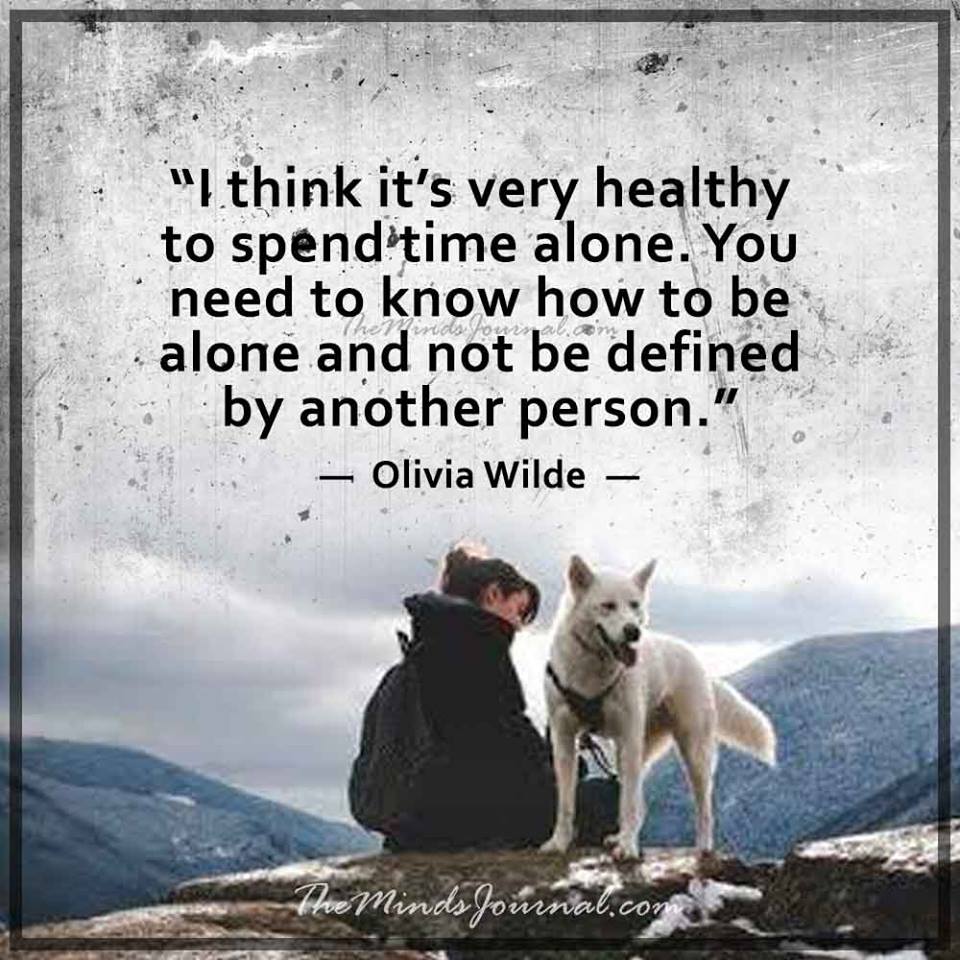
Now, these single bees are probably being out and about seeking food sources for the hive or seeking locations where the hive can live. And that would show that social behaviors are not even always necessary for completing important tasks in the animal world. Very often, solitude is necessary even when completing tasks for the group.
I work with a lot of individuals who spend a good deal of time alone. And they often feel terrible about themselves because they have few, or no, friends. I certainly work with them to find ways to connect more with people who, even if they are not going to become definite “friends,” are at least likely to have “friendly” connections with them. We also work on helping them be comfortable with social behaviors that are needed for asking for help.
But we also often work on recognizing that being alone can be positive as well. Having strong social relationships and frequent social interactions is not a necessity for survival.
It may be nice to have friends and people to rely on. Many people have a strong need for their social relationships. And then there are many other people who do not have strong social connections and do just as well.
Understanding this difference requires an understanding that people can become comfortable with being alone and enjoying their own company. One phrase I often use to help clients understand this is “being alone does not have to mean being lonely.”
Social behaviors are certainly as necessary for humans as they are for nonhuman animals. We need to be able to interact with the store clerk if we need help finding something. Or with the stranger if we need directions. But those are social interactions similar to the bees working on the hive.
They do not require a strong degree of social connection but, rather, require the ability to use specific social skills to get specific tasks done. They do not require social interaction beyond just that needed to get the specific job done.
It is useful to consider how much social interaction and social connection is actually required to survive and even enjoy life. There actually is very little required. You have to be able to interact with others to get things done but really there is not much else that you need. Many people may prefer more and that is fine. But many people may also prefer less and that is fine as well.
Related: 7 Reasons Being Alone Helps Build A Strong Personality
Why Spending Time Alone Is Not A Bad Thing
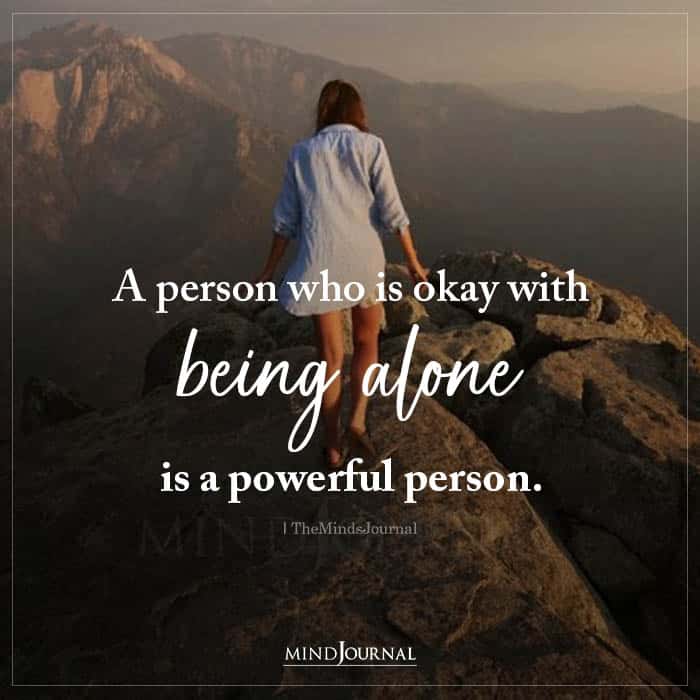
Spending time alone can be just as fulfilling as spending time with others. It is largely a matter of how someone approaches it and how much someone allows themselves to accept that is can be OK to be alone.
One of my favorite animal species to study and read about are bears. A big reason for this is that most bears spend a good deal of time alone. They have even been called by experts the most “antisocial” of animals.
Watching bears, and reading about them, can be a good way of learning just how little social interactions and social connections are needed in the animal world. Notice I use the word “needed” here. They may be wanted, or even preferred, but “needed” is another story.
Other species are interesting to read about in terms of their limited social interactions. Another that I found particularly interesting to read about lately is the puma. These wild cats tend to be solitary and engage in social interactions only when absolutely necessary.
In fact, I read an article recently on the social behaviors of pumas (Elbroch, Levy, Lubell, Quigley & Caragiulo, 2017) and found it interesting to read how the word “tolerated” was used as the primary description for how pumas approach social interactions.
Related: Amazing Things That Happen When You Start To Enjoy Being Alone
Much of the world has had periods of time where social interactions have been very limited. In many areas, this has been reduced and will likely be reduced more if virus rates stay steady or go down. There are also many areas where isolation is likely to continue and even increase. And that is on top of how many people will probably continue limiting their social interactions considerably even after the quarantine orders are no longer in place.
There is even evidence that planning to have time alone can be beneficial for many people. When someone feels they have been treated negatively by others, finding ways to separate from other people can be helpful. This is an example of how solitude can in many ways be beneficial (Ren, Wesselmann & Williams, 2016).
Being treated badly by other people is not effectively treated by being around more people. Very often finding time to be by yourself can be the solution. Social disconnectedness is probably going to be part of all our lives for some time to come. And it worth keeping in mind that does not have to be a bad thing. Because all animals, human and nonhuman, were meant to spend time alone.
References
Elbroch, L. M., Levy, M., Lubell, M., Quigley, H., & Caragiulo, A. (2017). Adaptive social strategies in a solitary carnivore. Science advances, 3(10), e1701218.
Ren, D., Wesselmann, E., & Williams, K. D. (2016). Evidence for another response to ostracism: Solitude seeking. Social Psychological and Personality Science, 7(3), 204-212.
Giving yourself alone time and getting comfortable in your own company will allow you to explore your passions without any hinderance. So what are you waiting for? Connect with your own self!
Written by: Daniel Marston Ph.D. Originally appeared on: Psychology Today Republished with permission
Frequently Asked Questions (FAQs)
Why is it healthy to spend time alone?
Research suggests that being alone can help a person focus on their priorities, enhance their social relationships, and improve their confidence by having control over the emotions, etc.
Is alone time good for mental health?
Being by yourself allows your brain to relax, focus, and think clearly. Alone time also provides much-needed rest for your mind, renewing your thoughts and your body.
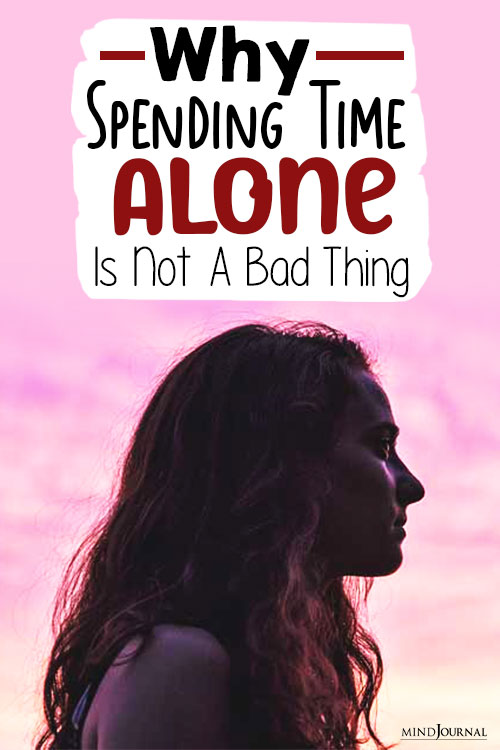
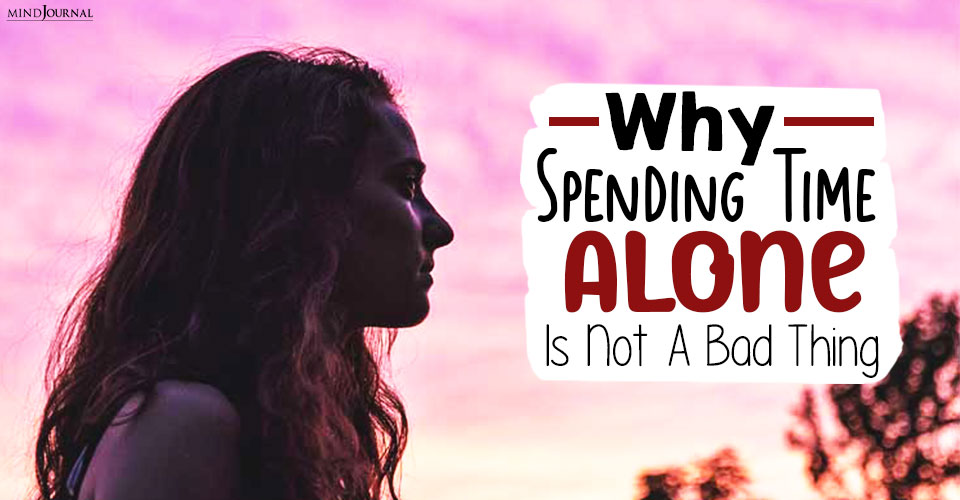


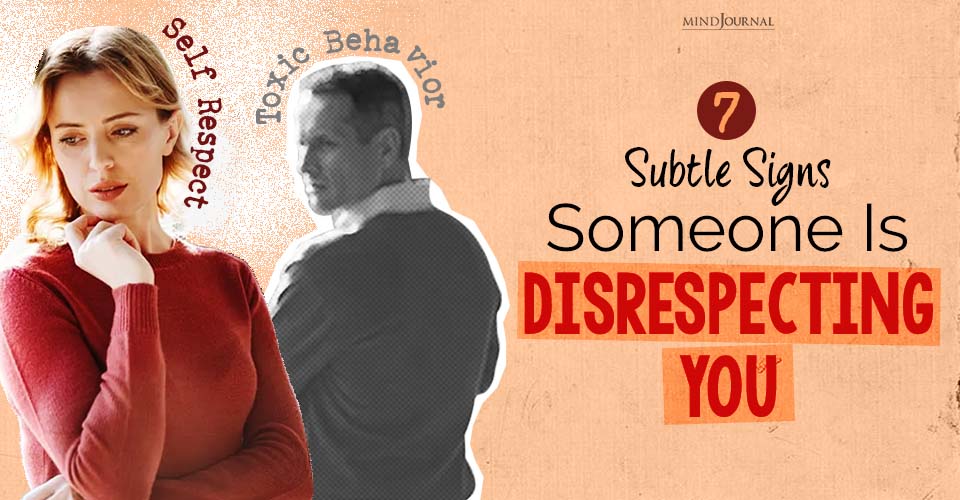


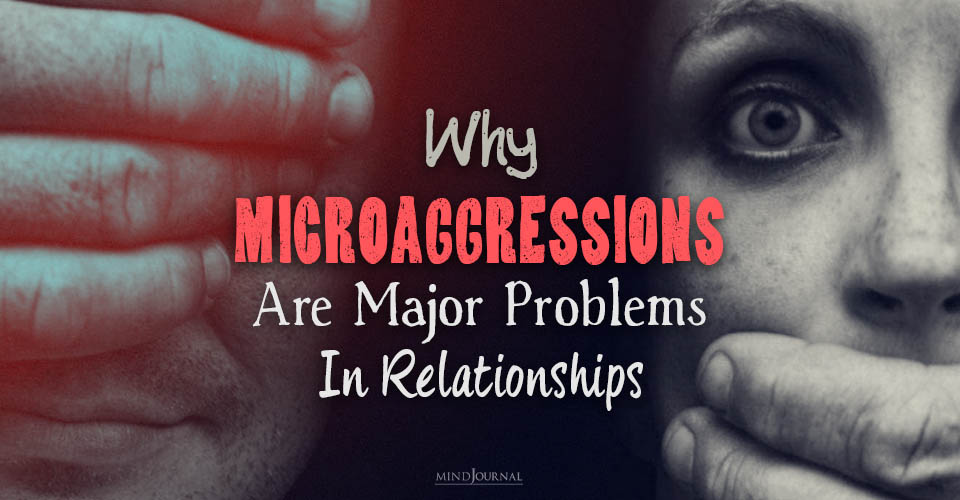





Leave a Reply
You must be logged in to post a comment.